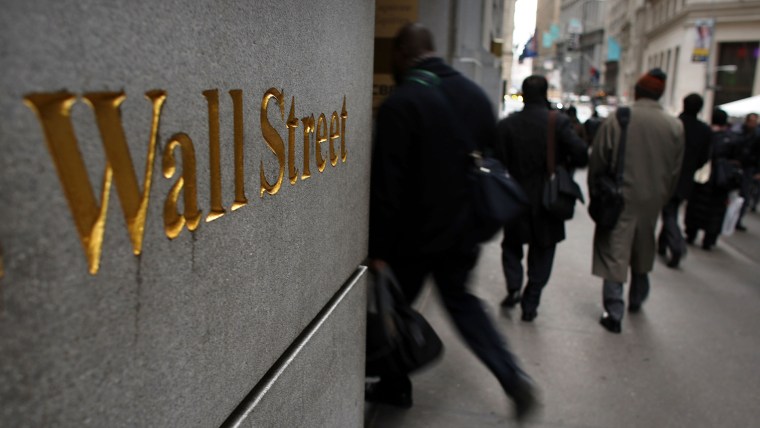When all else failed, Donald Trump had the stock market. No matter how bad the polls looked, no matter how severe the scandals surrounding the White House, no matter how many fights he lost, the president would point to Wall Street as if it were a meaningful accomplishment.
As we discussed a couple of months ago, Trump effectively saw the markets as a real-time barometer of his record. When Wall Street was doing well, it meant he was doing well. When stocks values looked good, it meant the value of his presidency looked good.
This was always unwise. Not only are there important differences between the stock market and the economy, but Trump, ignoring warnings, apparently worked from the assumption that the major indexes only move in one direction.
As the New York Times reported overnight, the president is learning a lesson he didn't want to learn.
The Trump Bump is becoming the Trump Slump.In the first year of Donald J. Trump's presidency, ebullient investors propelled stock markets to one record high after another. And Mr. Trump was the bull in chief, celebrating the record-breaking march as validation of his economic policies.Those days are done. Even after a fast start to 2018, stock markets finished the first quarter down for the year -- the first quarterly decline since 2015. It suggested that a period of calm and steadily rising markets had given way to a turbulent new era with a bearish bent.
Analysts will always argue about the root causes of various market shifts, but in this case, there's little doubt that that the president's tariffs have rattled investors, especially as China and others take retaliatory steps targeting American exports.
Republicans hoped a massive package of tax breaks benefiting the wealthy and big corporations would keep the bull market going. Instead, the Dow Jones Industrial Average has dropped more than 1,100 points -- more than 4% of its overall value -- since Congress approved the GOP plan.
CNBC's John Harwood added late yesterday that the DJIA is now up 19% since Trump took office early last year. Over that same time period, the market was up 37% under Barack Obama.
Circling back to our previous coverage, I think it's important not to respond to developments like these events in lazy, partisan ways. In the Obama era, Trump and his allies used to respond to even modest drops on Wall Street as proof that the Democratic White House was failing.
The line of argument proved to be ridiculous, not only because the stock market’s performance over the course of Obama’s presidency was very strong, but also because blaming short-term Wall Street trends on the White House is always unwise.
The trouble, however, is that Trump has gone out of his way to take credit for stock market gains. It apparently never occurred to him that would mean taking responsibility when stock values started to decline.
Jay Carney, one of the Obama-era White House press secretaries, noted a while back that it’s a “good time to recall that in the previous administration, we NEVER boasted about the stock market – even though the Dow more than doubled on Obama’s watch – because we knew two things: 1) the stock market is not the economy; and 2) if you claim the rise, you own the fall.”
Charles Gabriel of Capital Alpha Partners, a Washington research firm, told Politico, “This is a risk that the president clearly set himself up for. Until now, Trump’s had kind of a free ride in this market and taken so much credit for it, even though so much of it was due to easy-money policies from Janet Yellen and the Fed. Now she’s out the door and volatility is back.”
That was in February. The volatility is worse now.
